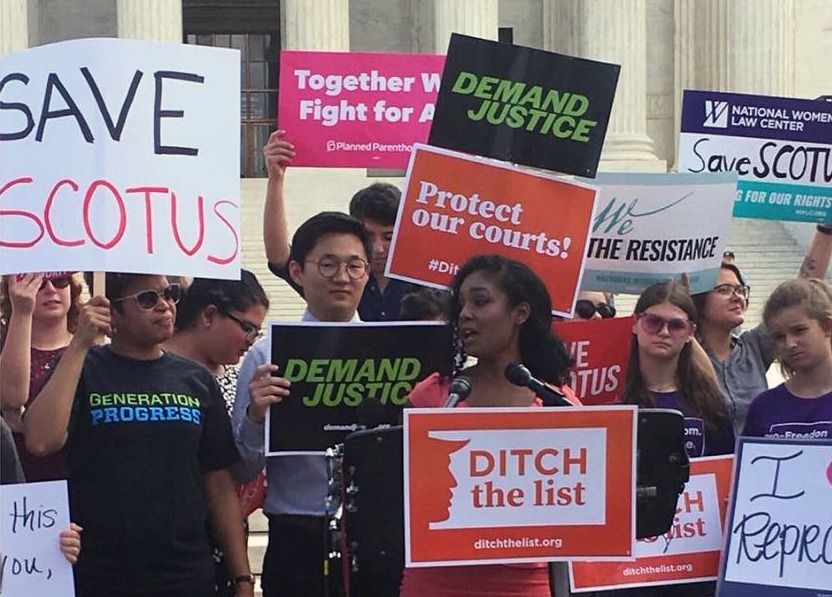- About
- Topics
- Picks
- Audio
- Story
- In-Depth
- Opinion
- News
- Donate
- Signup for our newsletterOur Editors' Best Picks.Send
Read, Debate: Engage.
Earlier this week, President Trump announced Judge Brett M. Kavanaugh as his nominee for the Supreme Court. Kavanaugh was selected out of 25 potential judges to replace Justice Kennedy, who will be resigning later this summer. All 25 contestants were carefully screened to ensure they will uphold the conservative agenda of the current administration, particularly on issues of abortion, affordable care, and access to guns.
Kavanaugh’s selection has sparked a Supreme Court confirmation battle of historical proportions, with Republicans relying on the former’s solid credentials and experience in politics to portray him as an impeccable candidate, and Democrats endeavouring to crack this image, insisting that his addition to the bench would imperil the civil rights and healthcare access for millions of Americans.
In an attempt to disqualify Kavanaugh, Democrats highlight past decisions delivered by him, which attest to his hard-core conservative views. Such decisions include, among others, a 2017 case in which Kavanaugh delayed an abortion for an undocumented underaged girl on the grounds of her immigration status; a 2015 decision in which he ruled in favour of a religious nonprofit that refused to provide contraceptive coverage, choosing to defend their religious freedom in defiance of the Affordable Care Act, and a 2011 case in which he ruled that owning a semi automatic rifle was a right granted under the Second Amendment.
Democrats have also referred to troubling statements made by Kavanaugh, in which he argues that a sitting President should be protected from any civil suits or criminal proceedings. Senate minority leader, Chuck Schumer, has argued that such statements predict with near certainty Kavanaugh’s intention to expand executive authority, saying he is “the one who would most yield to presidential power.”
However, blocking a Supreme Court nomination is an uphill battle for Democrats as they constitute a minority in the Senate (where confirmation hearings will take place). Thus, Democrats currently fighting to both win the support of Republican senators who advocate for abortion rights, as well as pressure Democrats running for re-election in swing states and districts to vote against the nomination, insist that their constituents won’t respond favourably if they support a judge who will trample on their access to healthcare services.
The crusade of politicians on both sides of the isle is currently magnified by advocacy groups and grassroots efforts to galvanise support either for or against Kavanaugh’s nomination through ads, petitions, and rallies. It is estimated that millions of dollars will be spent by both camps in the upcoming months on campaigns to promote their respective agenda.
In the meantime, the Trump administration is pressing hard to hold the confirmation hearings in early October, knowing that the balance of power in the Senate may shift after the November 2018 midterm elections. Numerous petitions currently pressure senators to hold off the hearings until after the elections, to ensure a more fair nomination process that accurately reflects the will of the people.
The nomination of Kavanagh would undoubtedly shift the ideological balance of the Court and cement its conservative bias for at least a generation to come. Furthermore, the recent series of Supreme Court decisions indicates that a conservative judiciary hand picked by Trump and McConnell would result in an omni-potent executive branch, virtually free from any checks and balances. The campaign to save the Supreme Court is thus a battle for the future of the United States. It is a fight to secure the well-being and freedom of all its dwellers, and the integrity of its democracy.
